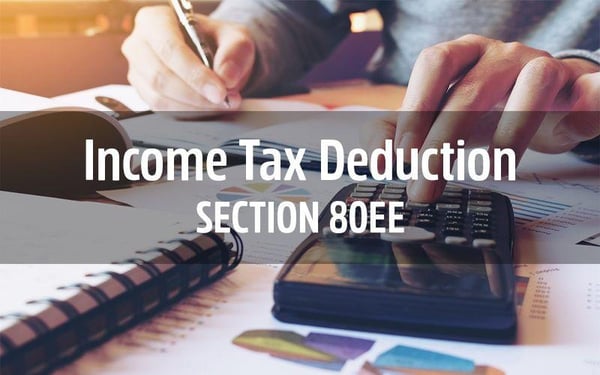By Soniya Gaonkar on Nov 8, 2019 4:19:55 PM
We all know how buying a home is both monetary value and emotional value. That is precisely why to unburden homebuyers; the government offers income tax benefits.
These benefits vary according to the property type, nature of construction and home loan amount. For instance, a first-time homebuyer can claim more tax deduction when buying an under-construction property rather than a ready property.
To help you further, we have come up with a list that explains how you can be a smart planner and save tax on real estate investment.
Indexation benefits
This benefit is available for long-term capital gains on a property. When you consider the cost of inflation, this benefit allows the cost of acquisition of the property to be adjusted.
The indexed cost of purchase will be calculated with the help of the Cost Inflation Index, which is notified by the income tax department every year.
Invest in specified bonds
Section 54EC provides the exemption on capital gains tax. The investment is to be made within six months of the sale of the property.
One can invest up to Rs 50 lakhs in these bonds, which have a tenure of three years.
Whereas the minimum investment in 54EC bonds is 1 bond amounting to Rs. 10,000, with a 5.75% rate of interest payable annually.
Section 80EE

Image Source: https://www.investors-clinic.com/
As of effective FY 2016-17 (AY 2017-18), this section is reintroduced. Now the deduction is allowed for up to Rs. 50,000 per year until the loan is repaid. The Section does not specify if you need to be a resident to be able to claim this benefit. Therefore it can be concluded that both Resident and Non-Resident Indians can claim this deduction.
The Section does not necessarily specify if the house should be self-occupied to claim any deduction.
Moreover, the deduction is possibly claimed only by individuals for the house purchases jointly or singly. If a person co-owns the house with a spouse and they both are paying the instalments of the loan, then they both can claim this deduction.
Related Post - Benefits of adding your spouse as a co-owner when buying a home
Section 80C:
Under this section, the amount paid as repayment by an individual of the principal amount of a home loan will be allowed for a tax deduction.
At present Rs 1,50,000 is the maximum tax benefit allowed that includes amounts invested in tax-saving fixed deposits, equity-oriented mutual funds, PPF account, National Savings Certificate, and Senior Citizens' Saving Scheme.
Though only after the construction has been completed and the completion certification received by the taxpayer, the tax benefit is allowed.
Section 24B:
The tax benefits on interest paid by an individual on his home loan are what this section deals with. For a self-occupied property, Rs 2 lakh is the maximum tax benefit allowed.
From construction, reconstruction, repair, renewal to purchase residential property, this home loan can be made use of.
In scenarios when the property for which the home loan is taken is neither self-occupied nor rented out, no maximum limit will be prescribed, and the whole loan interest can be claimed for deduction.
Related Post -How to Buy Home Insurance?













comments